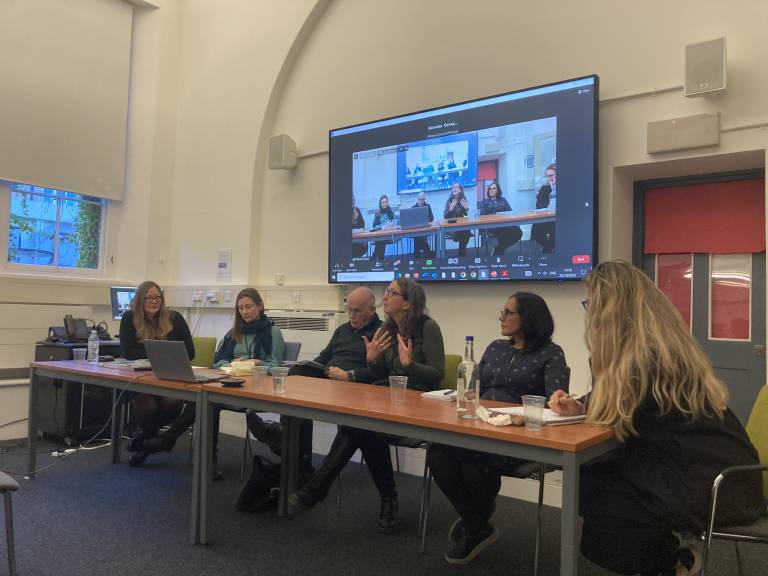Decolonising Language Studies
27 November 2023

The symposium on Decolonising Language Studies, held on 25 October 2023, was the second event in a series that responds to current calls for decolonising the curriculum by fostering a transdisciplinary dialogue across linguistics, cultural studies, social sciences, and politics as well as the critical study of discourse, intercultural communication, and multilingualism. On this second symposium we continued to explore the ways in which sociolinguistic ethnographic methods and participatory research can contribute to the conceptual and institutional re-grounding of the study of language(s) in a way which pinpoints the importance of interaction and discourse in understanding political and social professes of (in)securitisation in multicultural settings and the strive for social and cultural equity.
The presenters on the second symposium included Professor Li Wei (UCL IoE), Professor Alison Phipps (University of Glasgow), and Dr Victoria Odeniyi (University of Arts London). Their contributions were followed by reflections by invited discussants: Professor Ben Rampton (King’s College London), and Dr Riitta-Liisa Valijarvi, Dr Rachel Morley, and Dr Olga Voronina (UCL SSEES). Some of the questions explored in the discussion included:
- How do participatory initiatives in learning and research translate into policy and how can they be reflected in institutional settings?
- What are the ethical and moral dilemmas and risks of community-based collaborative research and learning?
- What are the practical implications of a decentred approach to language studies, where language learners are actively involved in finding the „language data” that serves as a basis for their learning through their ethnographic involvement with the communities whose language they study?
The event was varied and rich in content and stressed the need for a de-colonial lens in various ways. One main takeaway for me as both a language learner and an educator was the centering of (language) communities as experts and creating opportunities for students to interact with those communities be it through ethnographic fieldwork projects or creative engagement. This puts language learners and communities in direct contact, creating a space where mutual learning can take place. Unlike more traditional classroom settings, which often privilege a standard variety, such approaches allow learners to engage with authentic language in use and help them appreciate language as a cultural practice rather than a prescribed norm.
Fabian Matthias Helmrich, Lady Margaret Hall, University of Oxford
To me, the entire colloquium was something of a revelation in terms of opening a transformative new perspective to language learning. The concept of participatory learning is unquestionably the key takeaway, but also the notion that what matters is the learning of a real, living language that is spoken here-and-now by a concrete community of people is a powerful one.
Dušan Radunović, Durham University
 Close
Close

